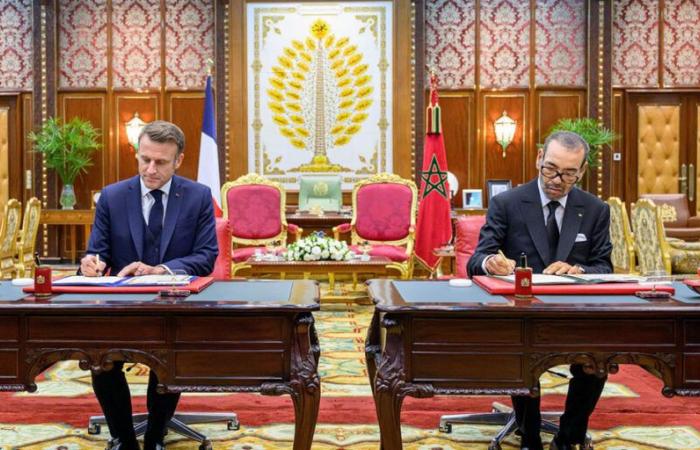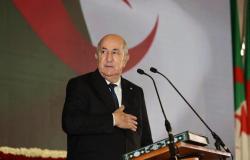
The issues and opportunities of the Franco-Moroccan partnership are dissected by the Moroccan Economic Center (CMC) in its latest monthly issue. It highlights a new chapter in the long history between France and Morocco by raising the relationship between the two countries to the level of an “exceptional reinforced partnership”.
After focusing on the orientations of the 2025 Finance Law, the Moroccan Economic Center (CMC) has just published its latest monthly issue, “Maroc Conjoncture” which highlights the challenges and opportunities of the Franco-Moroccan partnership in a context described by the Elysée as a new chapter in the long history between France and Morocco by bringing the relationship between the two countries to the level of an “exceptional reinforced partnership”.
On the one hand, at the end of the visit of Emmanuel Macron, President of the French Republic, from October 28 to 30, 2024, to Morocco.
On the other hand, following the alignment of France with the Moroccan position after the missive sent by the French President to King Mohammed VI on the occasion of the 25th anniversary of the Feast of the Throne Macron recognized Moroccan sovereignty over its Sahara, considering that the Moroccan Autonomy Initiative, presented since 2007 by the Kingdom, is the only basis for reaching a political solution. As a result, CMC is looking back on the achievements of this bilateral relationship which has opened up prospects for improvement in various key areas.
The analysis highlights the potential for development of cooperation between Morocco and France, in a profoundly changing geostrategic context, both in the Mediterranean region and in the relevant economic areas in Europe and Africa. With a long shared history, the two countries are invited according to CMC to adapt their partnership to new economic, social and environmental requirements.
The Center insisted on consolidating the achievements of the partnership between the two countries in the different areas of cooperation while exploring the new development opportunities presented by the transformations underway at the geostrategic level.
Constraints on private investment
Alongside the Morocco-France partnership, the new issue of the CMC focused on other themes such as the constraints on private investment and the reforms to be undertaken to unlock its potential. According to the CMC, Morocco has made progress in improving its business climate, in particular thanks to the new Investment Charter and certain provisions of the 2024 and 2025 Finance Laws.
However, structural challenges, such as bureaucracy, corruption, regional disparities and lack of suitable skills, continue to hamper the growth of private investment and its significant potential.
To transform these obstacles into opportunities, implementation of reforms is essential, accompanied by constant dialogue between public and private actors. If these efforts are carried out with determination, Morocco could not only strengthen its competitiveness, but also become a model of sustainable economic development on a regional and international scale.
Among the subjects discussed, there is also the question of growth for this year 2025 and the need for the national economy to regain its productive capacities before the crisis. Counting on the continuation of the trend of recovery in the activity cycle internationally, the exploratory scenario developed by the CMC for the 2025 financial year foresees a favorable change in the pace of growth.
This outlook is largely due to the expected recovery of the primary sector after the succession of years of drought which weighed heavily on the performance of agricultural activities. It is also due to favorable expectations for the other components of the productive system which will benefit from more sustained demand both internally and externally.
Natural: new strategic axis
Furthermore, this issue also addressed the natural gas sector as a new strategic axis of the Moroccan economy. Indeed, Morocco is aiming for energy objectives, in particular the reduction of GHG emissions and the increase in the share of renewable energies to 52% in the energy mix by 2030.
With this objective and in the desire to develop a reliable and competitive energy supply, investment in natural gas is a priority. Natural gas is in fact a fuel with abundant global reserves, and the use of which generates between 30 to 50% fewer CO2 emissions than other fuels.
Furthermore, natural gas helps ensure the stability of the predominantly renewable electricity network subject to intermittency. The development of this segment will allow Morocco to move away from electricity and make its uses, such as electric cars, less polluting. Substituting fuel oil will allow exporting industries to better cope with carbon adjustment at Europe’s borders.
The public programs adopted provide for the deployment, in adaptive stages over several years, of a new transport network as well as reception and storage infrastructures. All this while relying on a base composed of the Maghreb-Europe Gas Pipeline and the future Nigeria-Morocco Gas Pipeline.
Yassine Saber / ECO Inspirations





